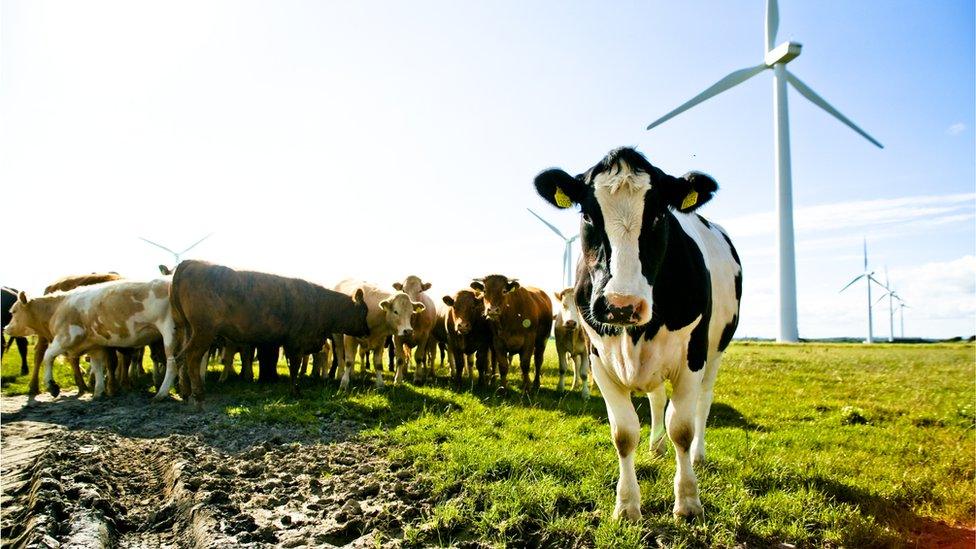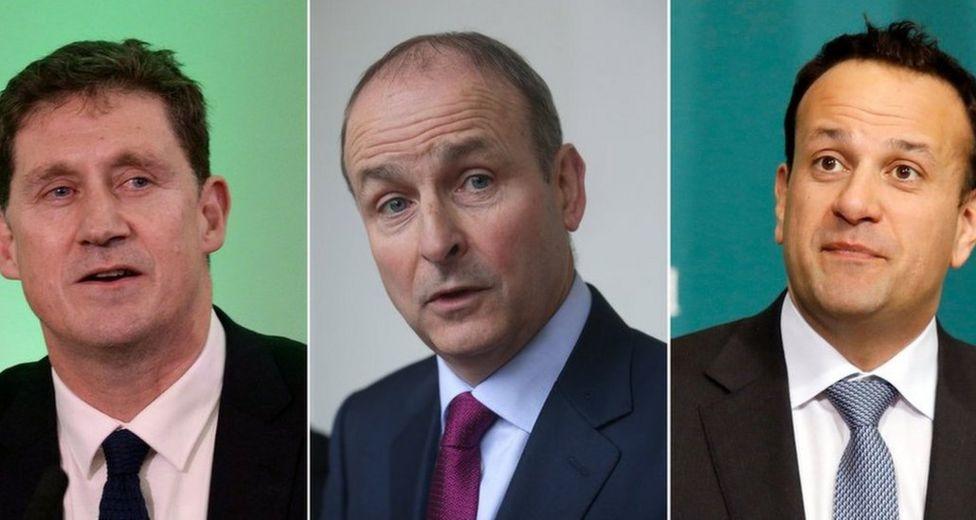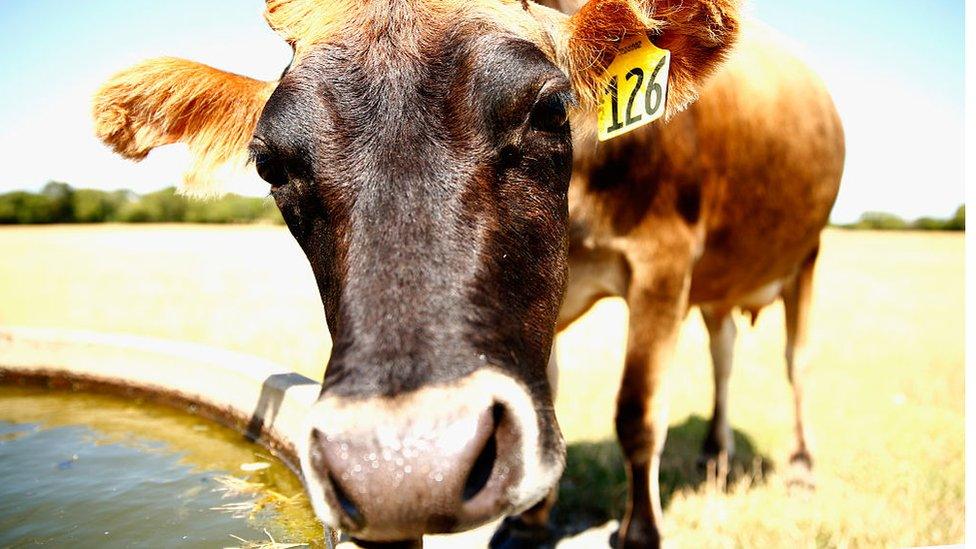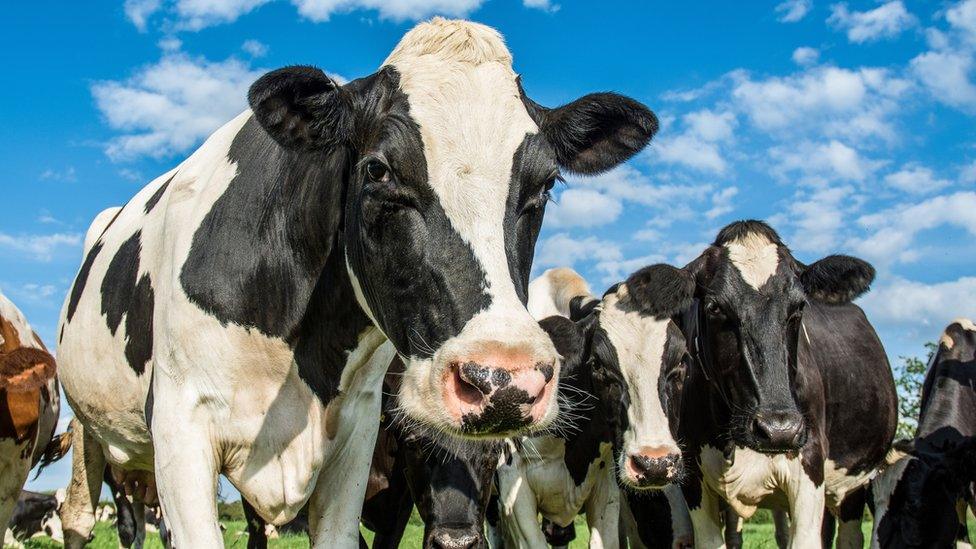Farmers in Republic of Ireland to be asked to cut emissions by 25%
- Published

Farmers in the Republic of Ireland are to be asked to cut their greenhouse gas emissions by 25% by 2030.
The compromise reduction target for the agriculture sector comes after negotiations between the three party leaders in the governing coalition.
The Irish government's climate action plan had pledged carbon emission reduction cuts of between 22% and 30%.
The Green Party had been pushing for the higher targets but rural TDs (MPs) pushed for the lower end.
An agreement was formally signed off by the cabinet on Thursday.
Party leaders Micheál Martin of Fianna Fáil, Leo Varadkar of Fine Gael and Eamon Ryan of the Greens, met throughout Wednesday to hammer out a deal.
The difference between both sides narrowed significantly on Tuesday with Minister for Agriculture Charlie McConalogue, a Fianna Fáil TD, refusing to go above a 24% emissions reduction target.

The party leaders felt pressure from their own politicians over the reduction targets
Mr Ryan, who is minister for the environment, refused to go below 26%.
He said he was happy with commitments made and warned the scale of change was "beyond compare".
"The targets that have been set today are going to be challenging for all sectors but they are also fair, appropriate and, importantly, based on what is achievable," Mr Ryan said.
McConalogue said that while the target for farmers was challenging, it was "ultimately achievable".
"I'm confident that breakthroughs in areas like feed additives will provide viable implementable solutions over the next number of years and we today recognise the key role of decarbonising the energy system," he said.
The deal has faced criticism from a number of opposition parties who say it does not go far enough.
"This would be a shocking lack of leadership by government and clearly demonstrates they are not prepared to, or capable of, making the tough decisions required to deal with climate change," Jennifer Whitmore, of the Social Democrats, said.
People Before Profit TD Bríd Smith said the target was "not in line with the science or Paris [Agreement]".
'Devastating blow'
Some TDs from the governing parties have also been critical, including Christopher O'Sullivan of Fianna Fáil, who said action on climate change was needed but argued going too fast would have a detrimental impact on "what is an important industry, particularly for rural Ireland".
The Irish Farmers' Association has warned the emissions cut target was a potentially devastating blow for Irish farming and the rural economy.
"The government has agreed to a target without any pathway to get there or any budget to assist farmers to reduce emissions," IFA president Tim Cullinan said.
"Farmers across the country will be rightly worried about what this means for their future" he said, adding that any attempt to "undermine farmers livelihoods or the viability of the sector" would be "opposed vigorously by the IFA".
Emissions ceilings for 2030 have been set for several other sectors, including electricity, transport, buildings and industry. The targets for reductions in each area are:
Electricity: 75%
Transport: 50%
Buildings (commercial and public): 45%
Buildings (residential): 40%
Industry: 35%
Agriculture: 25%
Other (gases, petroleum refining and waste): 50%
Related topics
- Published9 June 2022

- Published9 March 2022
